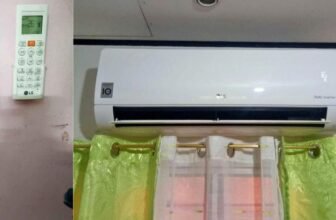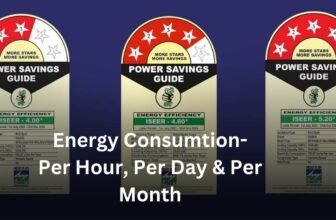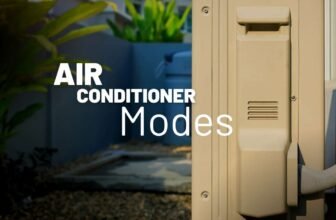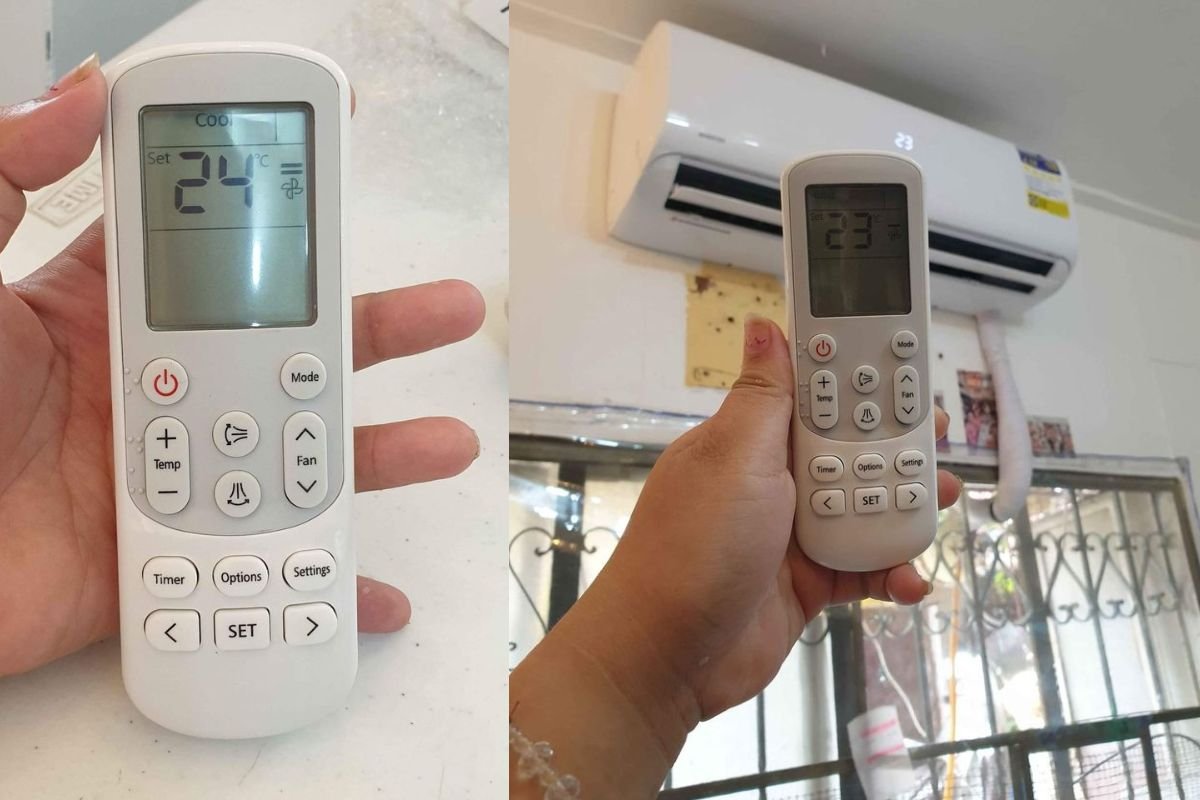
Tonnage in air conditioning doesn’t mean weight, it means cooling power. The term dates back to when cooling was achieved by melting ice. One “tonne” of cooling was the amount of heat needed to melt one tonne of ice in a day. This concept translated to modern air conditioning where one tonne equals 12,000 British Thermal Units (BTUs) per hour.
How Tonnage Relates to Cooling Capacity
When we talk about “what is tonnage in HVAC” we are really talking about how much heat an AC unit can remove from a space. A 1 tonne AC can remove 12,000 BTUs per hour, a 1.5 tonne AC removes 18,000 BTUs. The higher the tonnage the more cooling power the unit has. This is important in determining the “1 tonne AC unit square footage” it can cool. Typically a 1 tonne AC unit is good for 400 to 600 square feet.
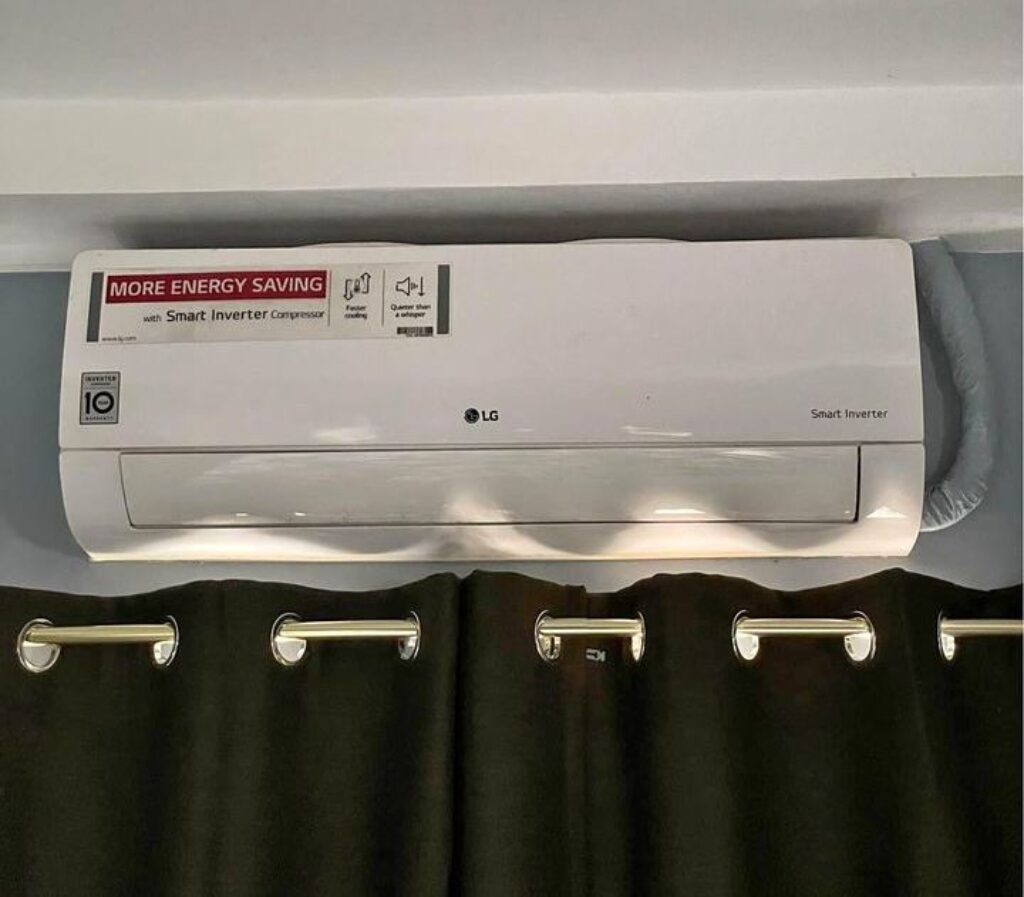
Common Misconceptions About Tonnage
People think more tonnage means better cooling. But an overpowered AC wastes energy and increases bills. On the other hand an underpowered unit struggles to cool the space. Understanding “how many square feet will a 1 tonne AC unit cool” helps you avoid these pitfalls. It’s not just about size but also efficiency and correct application.
The Science Behind AC Tonnage Calculation
British Thermal Units and Its Role
Let’s start with British Thermal Units or BTUs. It’s a fancy term but really it’s just about measuring heat. One BTU is the amount of heat needed to raise the temperature of one pound of water by one degree Fahrenheit. In AC’s BTUs are important because it tells us how much heat an AC can remove from a room per hour. So when you hear “12,000 BTUs” it means the AC can remove that much heat in an hour. That’s what one tonne of cooling capacity is all about.
Calculating Tonnage for Different Room Sizes
Now onto the math part but don’t worry it’s simpler than it sounds. To figure out the right tonnage for a room you need to know the room size. Here’s a quick guide:
- Under 20 square metres: Around 0.75 tonnes might do the trick. 20 to 40 square metres: 1 to 1.5 tonnes
- Over 40 square metres: 2 tonnes or more
Using an AC tonnage calculator per square metre can be really helpful in getting it just right. These tools take into account various factors like room size, ceiling height and even how many windows you have.
Factors Affecting Tonnage Requirements
Several things can affect how much tonnage you need:
- Room Size and Layout: Larger spaces need more cooling power.
- Windows and Insulation: More windows means more heat coming in, affects cooling needs.
- Occupancy and Usage Patterns: More people means more heat generated, so a crowded room might need higher tonnage.
Choosing the Right Tonnage for Your Space
Room Size and Layout
First off: size and room layout. This is super important! A 1-ton AC unit will suffice for small rooms including bedrooms or small living areas. The required tonnage for cooling a big living space or open-plan area should reach up to 2 tons or extend further than that. The space measurement alone does not determine everything. The airflow in the room becomes complicated because of its shape along with any walls or partition structures. The cooling process becomes more challenging for an AC unit when it operates in elongated narrow rooms or rooms with many partitions. Keep that in mind!
Windows and Insulation
We need to discuss the importance of windows and insulation in this section. Windows and insulation play critical roles in determining the size of air conditioning needed for a room. Rooms with numerous windows including sun-facing ones allow substantial amounts of hot air to enter the space. A higher tonnage AC unit might be necessary to achieve proper cooling in this situation. When your room has numerous glass windows that allow intense sunlight exposure you should consider buying either a 1.5-ton or a 2-ton unit instead of a 1-ton unit.
The topic of insulation leads us to another important point. The walls of your room do not provide insulation so the cool air leaves through them as hot air enters. Your air conditioner will operate at maximum capacity since it lacks any alternative options. Your room’s insulation needs improvement because you can boost the tonnage rating if proper insulation is absent.
Occupancy and Usage
We need to analyze both the room capacity and the frequency of occupancy. The actual number of people in a space together with their occupancy frequency affects the overall situation. The presence of many individuals produces greater body heat. A room that frequently hosts many people such as home offices or living rooms needs stronger air conditioning units.
The amount of space usage matters when selecting an air conditioner for hot and warm days and warm nights. The number of times a space is occupied should determine which AC ton would be optimal. A room requiring heavy use such as a living room should have a 1.5-ton air conditioner but a bedroom used only during warm nights requires a 1-ton unit.
Energy Efficiency and Tonnage: Finding the Balance
Tonnage and Energy Consumption
The measurement of tonnage holds significant importance in air conditioner systems. A tonnage rating represents the cooling capacity of your air conditioner system. The amount of tonnage determines the cooling capacity of an air conditioner. A bigger tonnage rating leads to increased energy consumption. The correct selection of tonnage stands as a vital decision for your cooling system. Selecting an air conditioner with excessive tonnage results in wasted energy which leads to unnecessary higher utility bills. The AC will experience extreme difficulty when you select a tonnage that is too small because it needs to run continuously to achieve cooling. The wrong tonnage selection creates two major problems for your electricity bill and shortens your air conditioner’s lifespan.
Overpowered vs. Underpowered Units
When you select the wrong tonnage for your system several issues arise. An AC with excessive power will cool rooms rapidly which leads to frequent cycling on and off operations. The frequent start-stop operation of the system leads to accelerated wear and drives up your electricity expenses. Not fun. An AC unit that lacks sufficient power will work continuously throughout the day while struggling to cool the space because it lacks the capacity to complete the task. The wrong tonnage selection leads to poor efficiency and comfort levels while increasing your financial costs.
Tips for Choosing the Right AC
The process to obtain the correct air conditioner while avoiding excessive analysis requires these steps. Here’s a quick guide:
1. The size of your room directly affects your decision about air conditioning unit selection. Take accurate measurements of the room space before selecting an AC unit with appropriate tonnage ratings. Small bedrooms measuring 120 to 150 square feet require 1-ton AC units whereas living rooms with sizes between 200 to 300 square feet need 1.5 or 2-ton units.
2. Proper insulation helps reduce the need for a bigger tonnage unit. An insulated room reduces the workload for your air conditioner.
3. The need for a powerful air conditioner depends on whether the space remains unoccupied throughout the day. Maybe not. Consider how frequently you will use the space to determine your AC tonnage needs.
4. The search for EnergyStar ratings should be your priority because energy efficiency holds great importance. A 5 Star ISEER-rated units provide substantial electricity cost savings because the 2025’s 5 star rating AC uses 770 units of electricity per year when operated for 8 hours daily. These units provide efficient cooling performance at affordable prices.
The Impact of Incorrect Tonnage on Comfort and Costs
Consequences of an Overpowered AC
If we talk about overpowered ACs, at first it sounds like a good idea. I mean, who wouldn’t want instant cold air, right? But here’s the thing—it’s not as great as it seems. An AC that’s too powerful (say, a 2-ton unit for a small room) will cool the space super fast but then shut off just as quick. And guess what? It’ll do that over and over—on, off, on, off. This constant cycling puts extra stress on the system so it wears out faster.
Now let’s talk about the cooling itself. With frequent cycling your room will end up with uneven temperatures. One corner feels like the North Pole, the other feels… meh. Plus these big guys consume more electricity—so yeah, higher electricity bills. And if that’s not enough they can suck out too much humidity leaving you with dry uncomfortable air. Not fun.
Challenges with Underpowered Air Conditioning
Now on the other hand an underpowered AC is a whole different headache. Imagine a small AC unit trying to cool a big room on a hot hot day. You’re waiting… and waiting… but that sweet spot of cold never happens. The unit keeps running non-stop trying to reach the set temperature.
This constant hustle wears it out faster. And since it’s always working overtime your electricity bill climbs up too. Plus all that extra effort means you’ll probably be calling for repairs more often. Worst case? You’ll end up replacing the unit sooner than expected.
Long term Financial Implications
So as I said, picking the wrong AC size isn’t just about comfort—it’s also about money. An oversized unit drains your wallet with high electricity bills. An undersized one? It’s not efficient and might cost you more in maintenance and repairs. Over time all these little costs add up.
The solution? Get an AC that’s just right for your space. Trust me it’s worth it. A properly sized unit will keep you comfortable and save you from unnecessary expenses. It’s all about finding that balance—cool, efficient and budget friendly.
Conclusion
So here’s the thing. The term tonnage in air conditioning describes cooling power rather than machine weight. The tonnage measurement indicates the hourly heat removal capacity of your air conditioning system. The correct measurement of air conditioning power is BTUs (British Thermal Units) and tonnage selection plays a crucial role. Too much cooling power? Your system runs inefficiently because you have no need for extra cooling power. Too little? You will experience sweating during summertime heat.
Determining the perfect balance remains the essential goal. When purchasing a new air conditioner consider both the room dimensions along with ceiling height and the typical summer heat in your area. Selecting the correct AC size according to your needs will prevent unnecessary expenses and comfort issues with your electric bill.
Frequently Asked Questions
The measurement of cooling power in air conditioners is expressed through tonnage and not through weight. The cooling capacity of an air conditioner during one hour equals one tonne. The exact measurement shows that one tonne equals 12,000 BTUs per hour.



